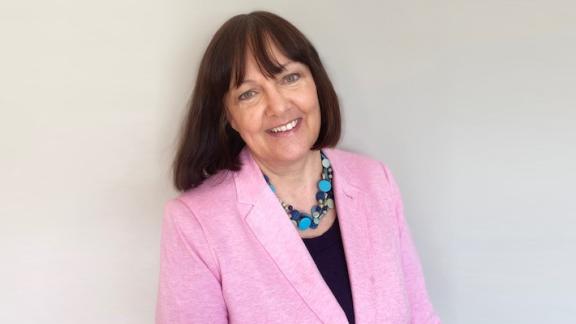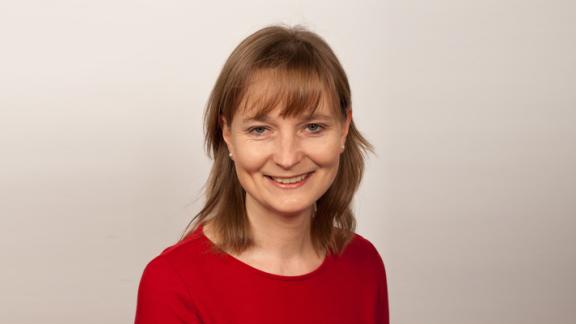Responding to challenges requires a partnership of equals

Lou Patten maps out some of the core ways that integrated care systems (ICSs) are working to strengthen their partnerships while preparing for statutory responsibilities by next spring, and describes the collaborative working of the ICS Leaders Network that is supporting key leaders and partners.
Over the last decade we’ve shifted away from thinking episodically about supporting people, to recognise that health issues are often about multi-morbidity and inequality. This requires a wider and more upstream ‘root cause’ approach to reducing inequalities and improving people’s mental, social and physical needs – and the NHS cannot do this in isolation.
The COVID-19 pandemic has exacerbated the undeniably huge challenges faced by the NHS, with an exhausted workforce and the health system facing unprecedented ‘winter in summer’ pressures. However, it’s also shown us that strong place-based planning alongside our colleagues in local government; voluntary, community and social enterprise (VCSE); and primary care networks (PCN) can have a positive impact on addressing some of these system pressures.
A huge ask of ICSs
The establishment of integrated care systems (ICSs), due to become statutory in April 2022, is increasingly seen as being part of the solution. They are all about improving the health of the population, reducing inequalities and ensuring that the NHS, alongside partners, contribute to local economic development and support integration across our health and care goals.
"We have an exciting opportunity to apply learning from all the great work already undertaken in ICSs."
This huge ask of ICSs depends almost entirely on the success of partnership working. While there are already many examples of how strong relationships with local stakeholders and the public can start to address the wider determinants of health and care, these partnerships will take time to become properly established.
We have an exciting opportunity to apply learning from all the great work already undertaken in ICSs and get the guidance and legislation in a good place by next spring, with a level of permissiveness not previously seen in NHS organisations. However, the timescales are challenging for systems to ensure they will be fit for purpose for the long list of statutory responsibilities that they take on next April.
A network of leaders
The NHS Confederation is ideally placed to respond to such future system challenges. As the host of the ICS Leaders Network, we can take full advantage of direct access to our membership networks and all their expertise, developing a wider understanding of challenges from different points within systems. Our umbrella view of all 44 systems means we have knowledge of the different levels of maturity and can tailor our support, including rapid sharing of peer learning. I can sense real excitement in our leaders with this chance to make a difference through this new way of working.
Building on the legacy
We have a positive legacy to build on through CCG and local authority joint working. Joint accountability for publishing the joint service needs assessment (JSNA), joint commissioning of mental health and other services, as well as a shared accountability with police and local authorities for safeguarding has developed strong system stewardship roles that ICSs must now take forward.
There are many common goals that should bring us all together in terms of creating good health, good living and improving the wellbeing for all our residents. The ICS Network advisorate, which oversees the Confed ICS Network, understands the important relationship between the Integrated Care NHS Board and the Integrated Care Partnership. Indeed, we have many local government leaders involved through their ICS leadership roles, and this collective, multi-organisational focus helps us get the right support to the members we serve.
Creating strong relationships
The consistent message from successful local government and NHS partnerships is the importance of relationships. As we learn to work differently, we need to do this together, with a clear understanding of the interdependencies between our various organisations and our services.
In my previous role as an ICS lead, we used to talk about party balloon dogs. If a leg is squeezed, then the bubble pops up somewhere else. It’s developing that understanding of what happens when you put a constraint on the system in one place; does the consequence bubble up somewhere else or can we collectively manage that down?
There is no shortcut to developing strong relationships. It’s a different journey for every single system and we need to preserve this uniqueness as far as possible.
Parity of voice
Successful system working is about recognising the vital and equal contribution of all system partners, not just our PCNs and NHS providers; our VCSEs, our non- statutory providers, our partners in housing, education, wider public services and local campaign groups all have a part to play and need to be heard.
Achieving such parity of voice is an important step towards achieving true system working, which means rethinking how we communicate and engage with our partners and populations. System leadership has to start with being accountable to the population and partners; as described by one of our ICS advisorate members, it’s a bit like having several bosses – whilst one pays their salary, they are answerable to the others too as all are equal within the partnership.
Shaping a brighter future
There are high hopes that integrated care systems will achieve measurable population health improvements and reduce inequalities by focusing on a partnership approach based on trust and transparency. However, such relationships take time and therefore expectations need to be managed. This won’t happen immediately, particularly when ICS chair and executive posts are only being confirmed over the next few weeks.
"...rapid access to clear, concise information and shared learning is key to supporting ICS leaders."
With our birds-eye view, the NHS Confederation can see that rapid access to clear, concise information and shared learning is key to supporting ICS leaders. We continue to engage with members and have set up new ways of reaching you quickly, while strengthening our key influencing voices at NHSEI and the DHSC. Some of you have already joined our Spotlight sessions on key topics and we hope to see more of you in the future.
We hope this new collaborative networks approach will help leaders shape a brighter future that will reduce inequalities and benefit the health of all our communities.
Lou Patten is ICS Network director at the NHS Confederation, and chief executive of NHS Clinical Commissioners. You can follow Lou and NHSCC on Twitter: @LouisePatten1 @NHCCPress


